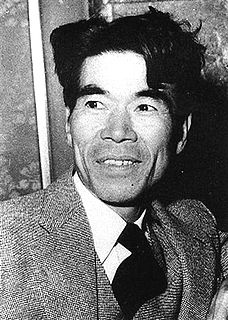A Quote by Irving Stone
Man's spirit grows hungry for art in the same way his stomach growls for food.
Related Quotes
A dogmatical spirit inclines a man to be censorious of his neighbors. Every one of his opinions appears to him written, as it were, with sunbeams, and he grows angry that his neighbors do not see it in the same light. He is tempted to disdain his correspondents as men of low and dark understandings because they do not believe what he does.
At the bottom of philosophy something very true and very desperate whispers: Everyone is hungry all the time. Everyone is starving. Everyone wants so much, much more than they can stomach, but the appetite doesn't converse much with the stomach. Everyone is hungry and not only for food - for comfort and love and excitement and the opposite of being alone. Almost everything awful anyone does is to get those things and keep them.
When I look in the fridge, I see groceries, but I don't see food. My stomach growls; but there is no appetite. Appetite and hunger are different. Appetite is the mental prompting that kicks the auto-response into drive so you actually reach out, take the food, put it in your mouth, chew, and swallow. I learned this in my first psychology course. Eating isn't just a physical need; it starts in the mind, generating hunger, which then should trigger the body to ingest food. I have no sparks between these plugs.
They say the way to a man's heart is through his stomach, so if you can get to a man's spirit soul by eating, and it works, why not do it? There's nothing better than having been chanting and dancing, or just sitting and talking philosophy, and then suddenly the devotees bring out the prasadam. It's a blessing from Krishna, and it's spiritually important.
The man who is extremely and dangerously hungry has no other interest but food. Capacities not useful for the satisfying of hunger are pushed into the background. 'But what happens to man's desires when there is plenty of food and his belly in chronically filled? At once, other (and higher) needs emerge and these, rather than the psychological hungers, dominate the organism.
The state of society is one in which the members have suffered amputation from the trunk, and strut about so many walking monsters, - a good finger, a neck, a stomach, an elbow, but never a man. Man is thus metamorphosed into a thing, into many things. The planter, who is Man sent out into the field to gather food, is seldom cheered by any idea of the true dignity of his ministry. He sees his bushel and his cart, and nothing beyond, and sinks into the farmer, instead of Man on the farm.




































